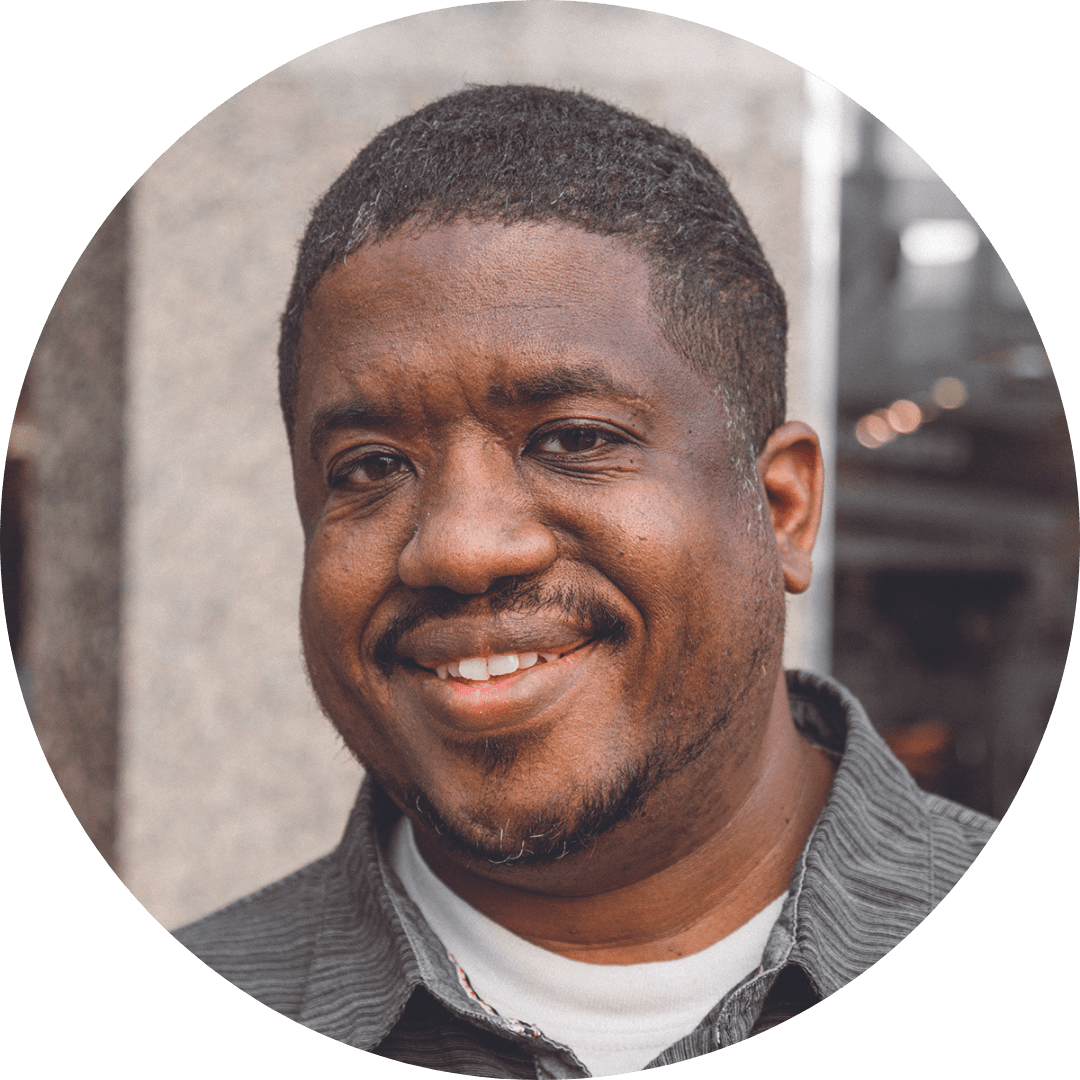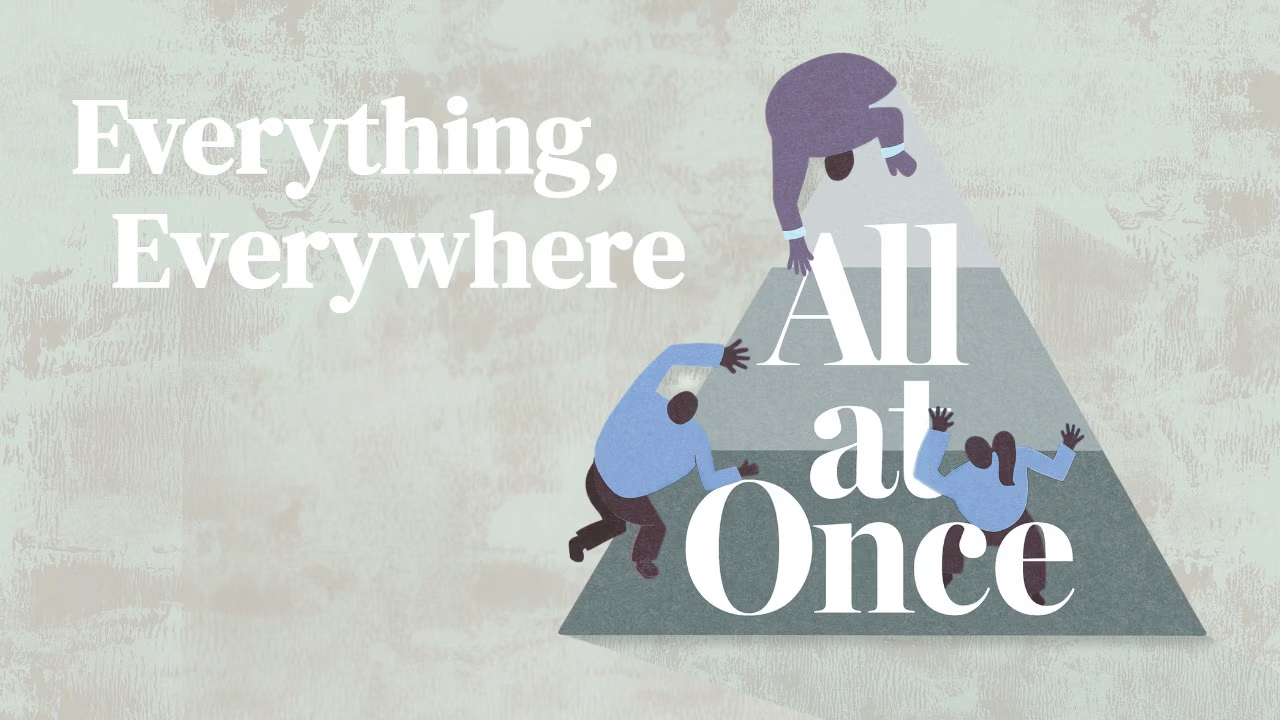In celebration of Black History Month, this series explores the significance of Negro spirituals, a genre of music with a rich legacy in American history and a deep impact on popular culture. Jelani Greenidge sat down with Dr. Rollo Dilworth, vice dean professor of music education at the Temple University Boyer College of Music and Dance in Philadelphia, Pennsylvania. Dr. Dilworth formerly taught and led choirs at North Park University for about a decade. This conversation has been edited for length and clarity.
When people talk about “spirituals,” what are they referring to? What makes a spiritual different from a gospel song or another form of Christian music?
A Negro spiritual is first and foremost a folk song, meaning it was derived by the people—not written down in particular, but conceptualized and then passed along from community to community and generation to generation through the oral tradition. Negro spirituals are folk songs and folk melodies that were developed during the period of enslavement of Africans in the United States. These songs are distinctive in that they served multiple functions. The text was used as a way of communicating multiple messages at the same time. On one level, the music communicated and reinforced biblical narratives that enslaved people were learning on plantations from evangelists and missionaries. But they were also encoded messages that could communicate a pending escape. These messages communicated discomfort, sorrow, rebellion, and also certain levels of perseverance in times of personal and collective struggle. They were used to accompany the labor that the enslaved were engaged in. So it’s not unusual that many of these pieces have a rhythmic character that would perhaps mimic plowing in the fields or a tool going into the earth, tilling the soil.
When you were teaching and leading choirs at North Park, you would teach us these songs using a technique known as Dalcroze eurhythmics, where we would move our bodies to the music as we were singing. It sounds like you’re telling me that, without even realizing it, we were hearkening back to those motions of forced labor. In these songs, there’s such an intimate connection between the heart, mind, and body.
Absolutely. In fact, in just about any language on the African continent, when they say the word for “music,” they put a condition on it and say, “But this word doesn’t just mean music. It means movement, it means dance, it means life. It means everything.” And so there’s this intertwining of music with movement, with life itself. That’s one of the unique properties communicated out of the African American spiritual or the Negro spiritual.
You’ve spent most of your professional career focused on this form of African American sacred music. What is it about the genre that has so fascinated, enthralled, or strengthened you?
Spirituals are cultural artifacts that play a significant role not only in the musical history of the United States but in American history in general. It’s not just words or melodies that were put together, but cultural artifacts that chronicle a specific period in the history of enslavement in the United States. Of course, the enslavement was negative. But what’s so exciting about this genre is that it also highlights the positivity of creativity in the time of struggle. It helps us to understand how music cannot just be used as a culturally specific tool for expression, but it can also be used as a universal tool for expression, with emotions that aren’t just singular to the African enslaved experience.
Yes, this music is about enslavement and bondage, and marginalization and hopelessness. But all of us can relate to using music as a tool to persevere during times of personal struggle. We all know what it’s like to experience loss. That’s why I encourage people—not just folks of African descent, but people of all backgrounds—to study, respect, and hopefully embrace this unique cultural art form.
You travel around the world teaching this music, doing clinics, and participating in symposiums. How is this music received in other places among people from other nations who are not rooted in the American story?
I can honestly tell you I have not been to a country where this music has not been embraced, celebrated, and treated with a high level of respect. In fact, I dare say that in some countries, this music gets more respect in academic circles than it does here in the US in the academies, colleges, and universities.
I think the reason the music is embraced is because most of the world understands through firsthand experience how much folk music plays a critical role in the development and sustainability of a culture. Ninety percent of the music created around the world is created out of a folk tradition in which the music is not written down. It is not limited to the five lines and four spaces of a musical staff. People are not necessarily concerning themselves with specific tone quality in their voices. They’re not preoccupied with a physical technique dictated by the rules and principles of the Western European paradigm.
I’ve gone to countries where people learn gospel music or spirituals and they don’t even know what the words mean, but somehow they can understand the energy behind the words at a visceral, human, emotional level. They get the sentiment behind the music. What they tell me is that they experience a sense of hope, joy, and liberation in the music. These are experiences that transcend the cultural barriers of language.
During my North Park years, I remember attending a mostly Puerto Rican church where the services were all in Spanish, but they played contemporary gospel music—which makes sense if you understand the African influence in Puerto Rican history and culture. I didn’t know the words, because I didn’t grow up speaking Spanish. But I knew what gospel music sounded like, and I felt Jesus in that place. I just remember thinking, “I’ll learn the words later.”
Right, exactly.
There’s an interesting generational divide in hip-hop right now, where people my age are used to the idea of hip-hop being a lyrical form that’s written first and then recorded into music. A whole generation of rap artists, many of whom were formed in the western academic tradition, took an approach to rap music as an extension of the written word. But now because the digital recording tools are so accessible, many Gen-Z rap artists don’t write anything down at all. They use what they call the “punch-in” method where they get into the studio, have the engineer turn on the beat, and just start vocalizing in a very freeform way. If they say something they like, they’ll say, “Keep that line.” For me as a writer that approach feels ridiculous, but for them, it feels normal and natural. That’s what people their age are connecting to in the music—the propulsive sense of feeling and emotion. It’s like, “I don’t even know exactly what I’m saying but I’ll figure it out afterward.”
Many forms of folk music happen in exactly that way. There’s experimentation with melody, with lyrics. As these melodies and lyrics get passed down through different communities and generations, they would, so to speak, punch in different sets of lyrics to fit their particular circumstances. Or maybe add another verse. There was no technology to capture it—it all just existed in the hearts and minds and bodies of the people.
What would you say to a young person or even an adult who wants to learn about this music? What are some recommendations you might give?
With the modern technology available, I’d recommend specific groups to listen to. Anything by Moses Hogan or featuring the Moses Hogan Singers. The Fisk Jubilee Singers, the Morehouse Glee Club, and certainly many of our HBCUs (historically Black colleges and universities), but also specifically Oakwood University, have a rich tradition with the Aeolians. That will help people to see that this music is not just antique; it’s relevant in 2025. Yes, there’s a history behind the music, but the music continues to evolve. New arrangements are created that connect to the past but reach toward the future. That’s the way folk music always is. It never remains stagnant. It’s always regenerating itself.
Do you have any favorites? Is there anything you would want people to sing in your honor whenever you leave this earth?
If there was ever a memorial that included my music, I have an arrangement of “Walk in Jerusalem” that I just cannot get enough of. It’s another New Testament spiritual, along with another favorite of mine, “Oh, What a Beautiful City.” Both are connected to the revelation of John, and there is this idea of making one’s way to glory that is just so powerful to me—not just textually and lyrically, but melodically. They’re absolutely killer, I just love them.
Is there anything else you want people to know about spirituals in general?
I want people to know that this music matters. It really does. It shapes not only my perception of history but my faith on many levels. And while it’s rooted in faith, this music has touched the lives of people across many faith traditions, and even people of no faith at all. We all gravitate toward music, not only as a tool but as an opportunity to connect on a deeper level to our own humanity, to the things that shape us into who we are.














